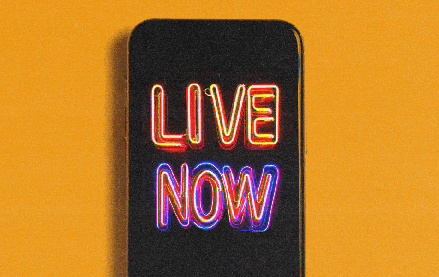
YouTube has promised to dole out cash to some of the top talent on its platform, helping popular creators fund new content and reach a broader audience.
“We’ll experiment with new formats and ideas. We’ll get our hands dirty. We’ll make some mistakes,” Alex Carloss, head of YouTube originals, wrote in a blog post Thursday. “Together, we’ll hopefully create some fantastic new content on YouTube.”
This isn’t the first time YouTube has opened up its checkbook to content creators, but its motivations now are radically different.
Back in 2011, the Google-owned company tossed $100 million at more than 100 channels across a broad range of verticals. Some were YouTube upstarts, but just as many were established media firms and figures: Hearst Magazines, Lionsgate, Thomson Reuters, the Comedy Shaq Network and Tony Hawk’s 900 Films, among others.
“That was all [YouTube’s] exercise in garnering some sort of legitimacy,” one publisher with a major YouTube following told Digiday.
Now YouTube is plenty legitimate, with ownership over a fifth of the digital video ad market. Yet it has decided “the time is right to make another important investment in our creators,” said Carloss. All of this money is going to “authentic YouTube creators,” not traditional media figures, a source inside the company confirmed. It’s unclear how much YouTube intends to hand out, but the company will only work with creators near the top of the charts, like Bethany Mota (7.3 million subscribers) or Freddie Wong (7.0 million subscribers).
Outrigger Media CEO Mike Henry, who helps brands develop and execute YouTube marketing campaigns, thinks the initiative is about taking YouTube stars and helping them create long-form programming.
“Stretching the popularity of YouTube stars beyond their typically short-form clocks is going to present a lot of advantages for Google, particularly for over-the-top consumption,” said Henry. Content that more closely resembles TV programming could be stickier for a broad range of demographics, he noted, and could also appeal to advertisers more comfortable with the format.
To that end, the company may consider pairing YouTube stars with established Hollywood producers. That’s “not an end goal,” but it’s certainly possible, said a source inside the company.
Others perceive YouTube’s new initiative as a defensive move while competitors like Yahoo, Vimeo and Facebook court popular video creators. “I think this is protection to keep these folks from leaving,” said David Cho, who has worked with YouTube at Grantland and The Awl.
Whether or not YouTube is scared of defectors, the company has come to recognize the immense value of its original content creators. It’s telling that Alex Carloss’ title, YouTube’s head of originals, is a new one; he used to be YouTube’s head of global entertainment.
“There’s almost no correlation between mainstream talent and YouTube success,” said Henry. “YouTube sees a lot of the same data we do. So rather than look to create a water-cooler moment for somebody who brings mainstream celebrity but doesn’t really resonate, bring someone who is already popular on your platform and build it from there.”
More in Media

Podcast companies turn to live events to capture growing advertiser spend
The surge in the number of live podcast events in 2025 reflects a broader shift: advertisers are betting bigger on podcasts — not just as an audio channel but as a full-fledged creator economy play.

Media Briefing: ‘Cloudflare is locking the door’: Publishers celebrate victory against AI bot crawlers
After years of miserably watching their content get ransacked for free by millions of unidentified AI bot crawlers, publishers were finally thrown a viable lifeline.

How Vogue could navigate potential industry headwinds as Anna Wintour — who agency execs say made ad dollars flow — brings on new edit lead
Anna Wintour’s successor at Vogue will have to overcome the myriad of challenges facing fashion media and the digital publishing ecosystem.





